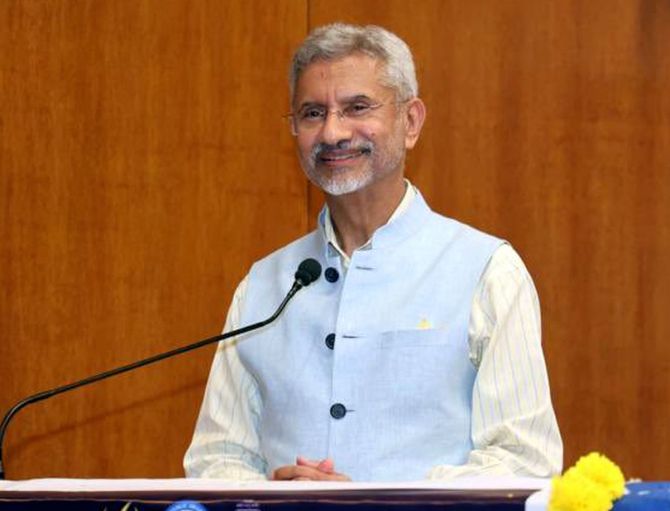External Affairs Minister S Jaishankar has said the days when vote bank politics would dominate foreign policy are gone and New Delhi's present ties with Tel Aviv is evidence of that, while speaking about the India-Israel relationship at an event in Gujarat.

"Due to some political reasons, we had to restrict ourselves from enhancing relations with Israel. Modi was the first Indian Prime Minister who went to Israel. The time has gone when we used to keep national interest aside for vote bank politics," Jaishankar said on Sunday.
Jaishankar was highlighting India's foreign policy while launching the Gujarati translation of his book The India Way: Strategies for an Uncertain World.
India is the only country where Israel has the position of Water Attache to help share Israeli best practices and technologies for advancements in India's water management sector.
The Union minister also lauded the Narendra Modi government, saying that it was "a great strength" to hold the post at this time.
"I will envy the person who is the foreign minister in 2047, but I will tell you one thing, to be the Foreign Minister of Narendra Modi government is also a great strength. There are core beliefs, confidence and attitude, and the world is recognising it," he said on Sunday.
India's independent foreign policy, he opined, had been transformed under Prime Minister Narendra Modi.
He said that India's population is declining due to education, social awareness and prosperity.
"The rate of growth of Indian population is falling. The reason is education, social awareness and prosperity. The family size among each one of us, with the passage of time, is small," he said at the event.
On the plus side, there have been improvements in various mortality indicators, but there also exist certain impediments to reaping the demographic dividend in terms of improving living standards, providing skill and training and generating employment.
The UN World Population Prospects (WPP), 2022, forecasts India becoming the most populous country by 2023, surpassing China, with a 140 crore population.
India currently has 17.5 per cent of the world's population.
India is projected to reach 150 crore by 2030 and 166 crore by 2050.
"... Forced population control can have very dangerous consequences, it can create a gender imbalance," said Jaishankar.










